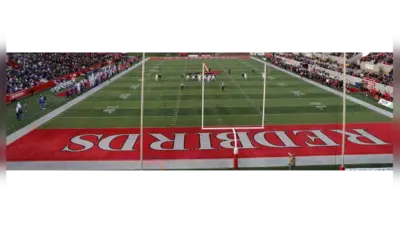Carl J. Wenning, Communications Manager, McLean County Republicans | McLean County Republicans
Carl J. Wenning, Communications Manager, McLean County Republicans | McLean County Republicans
As a man of faith, I am concerned when I hear that a fellow believer plans not to vote in the 2024 election. They are shirking their moral responsibility to God and the nation, which doesn’t bode well. At the outset, I remind my fellow believers that sins of omission are just as bad as sins of commission.
Dr. George Barna from the Cultural Research Center at Arizona Christian University recently estimated that about 32 million churchgoing Christians might not vote. Together with other faith-based groups, this could amount to over 100 million potential non-voters. This represents a significant untapped resource that could influence this election’s outcome.
Your Vote is Urgently Needed.
Recall this saying from George Santayana, Life of Reason (1905): “Those who cannot remember the past are condemned to repeat it.” This is very true and of great concern because today's events in the USA have begun to mirror the events in Germany around the time of the Second World War. What’s happening nowadays is reminiscent of the pre-WWII and WWII Germany when National Socialism overcame civil society, and sanity went out the door. The parallels between the events of yesteryear and today are uncanny.
There was/is growing political polarization among the people, growing one-party rule (especially here in Illinois), economic distress, social upheaval, government corruption, identity politics, weaponization of the government against certain of its citizens, scapegoating, and infringement upon human rights, growing gun control, legacy media with its propaganda and censorship, worship of and reliance on the federal government, and increasing intolerance, crime, and violence. At the national level, what we had/have is a movement rooted in the extermination of entire classes of people (the Jews then/the unborn now).
While today’s U.S. political structure and society differ substantially from Germany's in the 1930s and 1940s, we can see these trends straining our democratic system. I cannot overemphasize the importance of vigilance, unity, and responsible leadership to avoid repeating Germany’s historical mistakes. Voters must not stand idly by while our nation goes down in ruin. We must take a position against what we see happening, make our voices heard, and use our constitutional right to vote so long as we still have it.
Over the years, I have heard many people criticize the Church of pre-WWII Germany for not standing up to and stopping the Nationalist Socialist movement, especially at the outset when people still had a voice and could vote. Small “excesses” became world-class atrocities, all because people who could say or do something said and did nothing. Is the situation in the USA today any different? Many people, people of faith included, are standing idly by while our nation goes to wreck and ruin and even worse. They cite reasons for not voting. Here are several reasons that have been given:
Apathy or Disengagement: Some feel their vote won’t make a difference or that political issues don’t align with their priorities, making them feel disconnected from the political process.
Frustration with Candidates or Parties: Some people feel that neither the major parties nor the available candidates represent their values well.
Misinformation and Distrust: Others distrust the electoral process, and misinformation about voting systems has led some to question the effectiveness or security of their vote.
Logistical Barriers: Practical challenges such as registration difficulties, lack of transportation, or conflicting work schedules prevent many from voting.
Encouraging voter participation and addressing these barriers could significantly increase the turnout in elections by people of faith. Today, having insufficient time or opportunity is an inadequate reason because of the extended time available through early voting and even mail-in voting. Those who fail to vote for this reason are only making excuses. How else can we deal with the remaining reasons? Consider these arguments:
As a Catholic, I would urge that failing to vote in a critical election carries serious moral consequences, especially when foundational moral issues are at stake. According to Catholic teaching, participating in public life is not only a right but a duty for the faithful, as it directly impacts the moral fabric of society. By abstaining from voting, a Catholic might inadvertently allow for the advancement of policies or leaders that contradict core values like the sanctity of life, the protection of the family, religious freedom, and social justice.
The Catechism of the Catholic Church teaches that faithful citizens are called to “contribute along with the civil authorities to the good of society in a spirit of truth, justice, solidarity, and freedom” (CCC 2239). When moral issues dominate an election, not voting can diminish the Church’s influence in shaping a just society. As stewards of faith and civic responsibility, Catholics (indeed all Christians) are urged to prayerfully consider their vote to uphold the common good and fulfill their moral duty following the Church’s social teachings.
Lutheran theologian Dietrich Bonhoeffer would address the members of the Confessing Church with urgency and conviction, emphasizing our grave responsibility. If he were alive today (the Nazis murdered him), he would say:
“Brothers and sisters, our silence and inaction in the face of evil carry dire consequences. By abstaining from this crucial choice, we allow a regime founded on hatred, oppression, and the dismantling of human dignity to claim unchecked power. God has given us the gift of reason and a voice to be used in service of justice and righteousness. To abstain is to permit oppression, violence, and untruth to permeate our nation unchecked. As the Church, our duty is not only to profess Christ but to live out His truth, even in our civic duties. Let us resist the encroachment of this darkness not only in word but in deed, using every avenue, including our vote, to protect the sanctity of life and freedom that are under threat.”
Bonhoeffer would urge the electorate to see voting not as a political act alone but as a moral and spiritual responsibility, resisting the evil rising in their midst.
What about the separation of Church and State?
As James Garlow, author of Well Versed (2015), stated, “I would clarify that the claim of ‘separation of Church and state’ is often misunderstood and misapplied. The phrase itself does not appear in the U.S. Constitution; rather, it comes from a letter written by Thomas Jefferson in 1802 to the Danbury Baptist Association, where he assured them that the First Amendment built a ‘wall of separation’ to prevent government interference in religious expression. The intent was to ensure freedom for religion, not from religion, guaranteeing that government could not control or restrict religious practices.”
Dear reader, it is essential to recognize that Biblical principles offer a solid foundation for good governance. When religious influence is removed from public life, society risks losing its moral compass. By understanding this principle, we can see the importance of allowing faith communities to participate openly in discussions on governance and morality without fear of government retaliation or censorship.
What a difference people of faith can make.
People of faith can make a significant difference in politics by promoting values such as justice, compassion, and integrity. Here are ways they can contribute:
Supporting the right party: As I mentioned in two of my earlier columns (Paradoxical Support for the Democrat Party, Part 1 and Part 2), I can’t understand how Christians think they can licitly support the progressive Left and all it represents when so much of what the Party preaches is opposed to Christian principles.
Supporting conservative candidates: Parties Left and Right are not “correct” on every issue, so it’s essential that our voting be nuanced so the best candidate (even if we don’t agree with him 100% of the time) receives our vote.
Voting in every election: Faith-based voting is a powerful tool. By voting according to their values, people of faith can impact policy on social justice, religious freedom, and family rights and make this world a better place to live.
By engaging in politics through these avenues, people of faith contribute to a balanced and ethically grounded society, fostering respect and care for all community members. To the extent that they do, they can make a difference. To the extent that they can’t, won’t, or don’t, they have no chance of influencing the outcome of the 2024 election and the future direction of our nation. I urge you to get out there and vote to support your conservative values.






 Alerts Sign-up
Alerts Sign-up